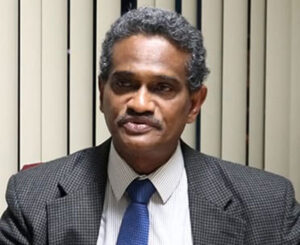Put laws in place now to avoid being trapped, conned by oil companies – TT Expert
In a matter of eight days, Guyana would have reached its first year of being an oil producing State. But when one reflects the extent to which it has prepared for the effective regulation of this new sector and the revenues to come, Trinidadian Energy Strategist, Anthony Paul, asserts that there is indeed more the nation can do to protect itself.
During his latest appearance on Kaieteur Radio’s programme, ‘Guyana’s Oil and You,’ Paul posited that Guyana needs to put robust laws in place as quickly as possible so that oil companies can have no room to debate or wonder what exactly is required of them. With such laws in place, the industry expert said that Guyana would reduce the chances for regulators being surprised by certain tactics or simply being fooled.
The Trinidadian said, “It has a been a difficult year for everyone because of COVID-19 and Guyana, since it started, has had to move at a rapid pace and has been forced to improve its institutional capacity as quickly as possible. But that aside, Guyana has been able to get its lifts offshore done on time and it has managed to find partners to sell the oil to and get the revenue put away for the future.”
He added, “…But the spotlight of the world has been on Guyana and how it is managing its resources. Now we know Guyana has limited resources and it has been trying to do as much as it can with that.”
Paul said that such circumstances are not unique to Guyana. He has seen it to varying degrees with Trinidad and Tobago and even Ghana. In the case of the latter, he said that this African nation had the luxury of having had a state oil company in the earlier years with technical people who knew the industry and could have supported the current regulatory arm that was needed to monitor its industry. But even then, Paul said that Ghana still took some time to get off the ground with its oil finds in 2010 and improve capacity.
The expert said, “But once they did, they ramped up very quickly…Importantly, they put in very early, strong laws and regulations to underpin the experienced people who were doing the work. Now the challenge of small countries doing oil and gas and dealing with sophisticated companies is making things right. At every point, there is a discussion or negotiation on what to do.”
When countries like Guyana are in such in a position, where the institutional capacity is not strong, Paul said he would recommend putting in place, the strong rules and regulations as well as procedures so that it is easy for companies to know what they must do and how they must do it. “That way, there is no discussion, argument or surprise where this is concerned. And it is easy for the government to get things right so someone who is making a decision without strong experience won’t be bullied or cowered or fooled.”
Paul said he is aware that Guyana is still to do this while adding that he knows there are efforts being advanced to correct this. Be that as it may, he said it would be in the nation’s interest to spend some time looking back at what happened from discovery to production and evaluate what it can do better and perhaps, assess what improvements could have been had if the laws and regulations were where they needed to be. He said that this is a pertinent exercise since many of the decisions made in the past would have to be repeated. “I am sure you want to improve, there is no reason why you can’t learn from your past,” Paul concluded.






















